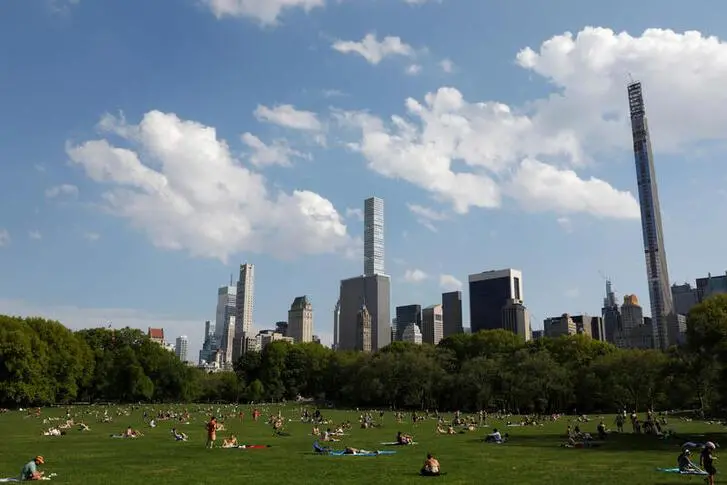PHOTO
We are still in the early stages of this global pandemic but scholars of international politics and economics already acknowledge that the coronavirus disease (COVID-19) represents one of the greatest and most complex global crises since the Second World War.
Although the main focus of the international community is still on how to manage the health aspects of the crisis, there are already calls from some quarters for major structural changes in the post-pandemic era.
When the war ended 75 years ago, it resulted in crucial shifts at state and international levels. The crisis the world now faces is on a similar scale, and so significant global change is once again expected.
Several multilateral and multinational institutions were created in the aftermath of the Second World War to help the world recover and develop.
In times of crisis, the greatest responsibility falls on multilateral institutions such as the UN, which this year marks its 75th anniversary.
However, the UN’s handling of the pandemic has been less than praiseworthy, as has been highlighted by a number of countries, including Turkey, India and Canada.
During a UN Security Council meeting this week, Turkish Foreign Minister Mevlut Cavusoglu criticized the organization’s slow response and lack of action to tackle pandemic, during which nearly 2 million people have been infected.
“Everybody agrees that the Security Council has been late to respond to the COVID-19,” he said. “They met to discuss the pandemic almost four months after the outbreak. This is unbelievable — outrageous.”
Cavusoglu accused the Security Council of failing to take any effective action to address the crisis, saying: “It’s been months since the start of the coronavirus pandemic but the council has not passed a single resolution so far.”
The UN held its first meeting, during which Secretary-General Antonio Guterres said the efforts of the Security Council will be “critical” to mitigating the peace and security implications of the pandemic.
The Security Council has 15 members, five of whom — China, France, Russia, the UK and the US — are permanent members. The other 10 are elected for two-year terms by the General Assembly. The permanent members have the right to veto resolutions. This structure has long been criticized by many world leaders, who argue that the fate of the world cannot be allowed to rest on the wishes of only five states.
Turkish President Recep Tayyip Erdogan, for example, has been a vocal critic, adopting his well-known slogan: “The world is bigger than five.”
Cavusoglu’s comments were not the first time questions have been raised about the Security Council’s credibility during times of crisis, nor is Turkey the only country calling for membership reform.
Trust in all international institutions was already in decline before the pandemic, but the health crisis has accelerated the trend. Indeed, the global actors, such as China and the US, seem to be partly responsible for this decline. Countries sidelined by the five permanent members see the pandemic as an opportunity to push for the change they believe is necessary for the UN to remain relevant and credible.
Canada, India, Turkey, Brazil, Japan and some Muslim and African nations have called for a reform of the Security Council to better address the challenges of the 21st century. It might have played a significant role in helping to rebuild the world after the second World War, but international power structures, economic distributions and political norms have changed considerably in the past seven decades.
In the world of today there are diverse actors, diverse crises and diverse ways to respond them, which the Security Council is increasingly unable to properly address in its current form.
Let us consider for a moment how the permanent members responded to the global health crisis. China lost credibility after the world discovered that it concealed information about the initial outbreak. The US has failed to respond to the pandemic effectively. The UK’s handling of the crisis has shocked the world and exposed the deficiencies of the current British government. Doctors in France called for coronavirus vaccines to be tested in Africa, sparking worldwide anger.
In addition, the permanent members have consistently failed to present a united front in efforts to end escalating geopolitical rivalries around the world. The US, for example, blocked a resolution calling for a global ceasefire to address the pandemic, blaming China’s efforts to include a mention of the WHO in the text of the resolution.
The outdated structure of the Security Council is neither inclusive nor representative, and it has been further diminished by the policy failures of the permanent members as they attempt to deal with the pandemic.
The global health crisis has exposed the Achilles heel of the international power structure to a greater extent than ever before. The international community should seize upon the opportunity as a catalyst for reform of the Security Council.
- Sinem Cengiz is a Turkish political analyst who specializes in Turkey’s relations with the Middle East. Twitter: @SinemCngz
Copyright: Arab News © 2020 All rights reserved. Provided by SyndiGate Media Inc. (Syndigate.info).





















